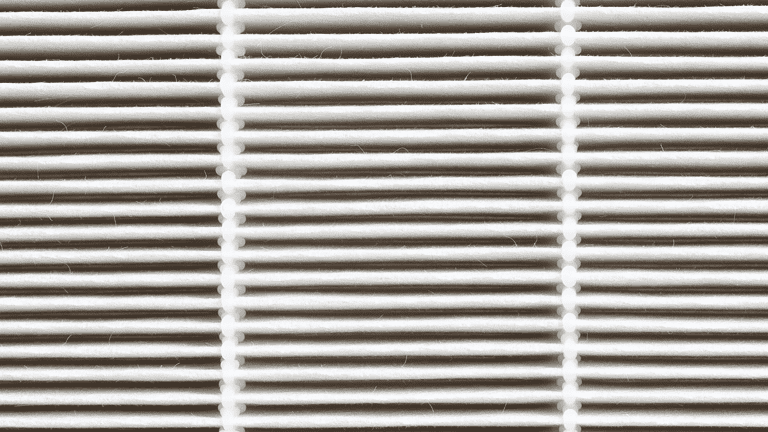How Often Should You Change Your AC Filter: A 6 Part Comprehensive Guide
Having a properly functioning air conditioning (AC) system is crucial for maintaining a comfortable and healthy indoor environment. One of the key components that ensures the efficiency of your AC unit is the air filter. The AC filter plays a vital role in improving indoor air quality by trapping dust, pollen, and other airborne particles. However, many homeowners ask, “How Often Should You Change Your AC Filter?”. In this comprehensive guide, we will explore the factors that influence the lifespan of your AC filter and provide valuable insights to help you determine the ideal replacement schedule.
Table of Contents
“How Often Should You Change Your AC Filter?” But First…
The Importance of Regular AC Filter Changes
Before diving into How Often Should You Change Your AC Filter, it’s essential to understand why regular replacements are necessary. The primary function of the AC filter is to capture airborne contaminants and prevent them from entering your home. Over time, the filter accumulates dirt, dust, pet dander, and other particles, which can obstruct airflow and reduce the efficiency of your AC system. Additionally, a clogged or dirty filter can negatively impact indoor air quality, leading to allergies, respiratory issues, and an overall uncomfortable living environment.
Factors Influencing AC Filter Lifespan
Several factors determine How Often Should You Change Your AC Filter. By understanding these factors, you can better gauge the optimal frequency for changing your AC filter:
- Filter Type: The type of AC filter you have installed plays a significant role in determining its lifespan. Fiberglass filters are usually cheaper and need to be replaced more frequently, typically every 30 days. Pleated filters, on the other hand, have a higher particle-capturing capacity and can last up to 90 days before requiring a replacement.
- Environmental Conditions: The environmental conditions within and around your home can affect the lifespan of your AC filter. If you live in a dusty area, have pets, or experience higher levels of air pollution, your filter may accumulate contaminants more rapidly, necessitating more frequent replacements.
- Occupancy and Habits: The number of occupants in your home and their habits also impact the lifespan of your AC filter. Homes with more people or those with smokers may require more frequent filter changes due to higher levels of pollutants and odors.
Recommended Filter Change Intervals
- Fiberglass Filters: If you have a fiberglass AC filter, it is advisable to replace it every 30 days. This ensures optimal performance and prevents airflow obstruction caused by accumulated dust and debris.
- Pleated Filters: Pleated filters generally have a longer lifespan, typically lasting between 60 to 90 days. However, it is essential to check the manufacturer’s recommendations and monitor the filter’s condition regularly to determine the ideal replacement frequency.
- Electrostatic Filters: Electrostatic filters are reusable and require regular cleaning instead of replacement. Depending on the manufacturer’s instructions, these filters can last up to six months or even longer.
Signs Your AC Filter Needs Changing
Apart from following a regular replacement schedule, it is crucial to pay attention to signs that indicate your AC filter needs changing. These signs include reduced airflow from the vents, increased dust accumulation in your home, a spike in energy bills, and worsening allergy or respiratory symptoms. Monitoring these indicators will help you identify How Often Should You Change Your AC Filter, even if it hasn’t reached the recommended time interval.
Steps to Proper Maintenance and Filter Replacement
To ensure proper maintenance and determining How Often Should You Change Your AC Filter, follow these essential steps:
- Check the Manufacturer’s Recommendations: Start by reviewing the manufacturer’s instructions and recommendations for your specific AC filter. They often provide guidelines on the filter’s lifespan and when it should be replaced.
- Regularly Inspect the Filter: Set a reminder to inspect your AC filter at least once a month. Remove the filter and examine its condition. If it appears dirty, clogged, or damaged, it’s time for a replacement.
- Consider Environmental Factors: Take into account the environmental conditions and factors discussed earlier. If you live in an area with higher pollution levels or have pets, you may need to change your filter more frequently when considering How Often Should You Change Your AC Filter.
- Maintain a Cleaning Schedule: If you have a reusable electrostatic filter, follow the manufacturer’s instructions on cleaning and maintenance. Create a cleaning schedule to ensure regular upkeep and optimal performance.
- Purchase and Store Extra Filters: It’s a good practice to have extra filters on hand, especially if you have a disposable filter. This way, you won’t delay the replacement process if the current filter needs immediate attention.
Benefits of Regular Filter Changes
Maintaining a consistent schedule for How Often Should You Change Your AC Filter offers several benefits:
- Improved Indoor Air Quality: Regularly replacing your AC filter ensures that it efficiently captures airborne particles, allergens, and pollutants. This leads to cleaner and healthier indoor air quality, reducing the risk of respiratory issues and allergies.
- Enhanced Energy Efficiency: A clean filter allows for proper airflow, which optimizes your AC system’s energy efficiency. When the filter is clogged, the system works harder to maintain the desired temperature, resulting in increased energy consumption and higher utility bills. So definitely use this to determine How Often Should You Change Your AC Filter.
- Prolonged AC System Lifespan: By ensuring the filter is clean and functioning correctly, you help prolong the lifespan of your AC unit. Reduced strain on the system components leads to fewer breakdowns and the need for costly repairs or replacements.
How Often Should You Change Your AC Filter Conclusion
Regularly changing your AC filter is a crucial aspect of maintaining a healthy and efficient air conditioning system. How Often Should You Change Your AC Filter depends on factors such as the filter type, environmental conditions, and occupancy of your home. By following the manufacturer’s recommendations and monitoring the filter’s condition, you can establish an appropriate schedule for replacement. Timely filter changes result in improved indoor air quality, energy efficiency, and an extended lifespan for your AC system. Remember, a small investment in filter replacements can have significant long-term benefits for your comfort and well-being.







